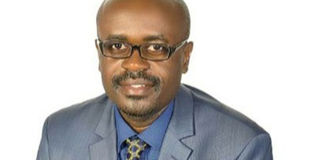The incompatibility of African culture and hyper-liberalism of democracy

Raymond Mugisha
What you need to know:
Today, many Africans believe in this right to demonstrate, and indeed several intense demonstrations have happened in African countries since independence
Traditional Africa was monarchical. Pre-colonial Africa, therefore, developed her socio-cultural fabric within the structure of systems that recognize the sovereignty of monarchies and strict, nearly inflexible rules. A lot of our traditions and practices were fomented, nurtured, and promoted within systems of this nature.
Some of our social and cultural beliefs of today still draw a lot from the ancient seeds of the said systems. It is for this reason that many Africans still feel more passionate and emotive about their cultures and related institutions even more than the modern-day state formation where they belong.
Their relationship with the state is in a way transactional, while their relationship with their cultural institutions is in their hearts, if you may. It is thus common to encounter immense contradictions in an African who is endeared to the gospel of democracy, while also strongly attached to the edicts of one’s traditions. The continuum of authority and control puts monarchical rule and democracy at nearly extreme opposites, for the latter form of governance espouses rule by the people.
Whereas some African cultures may cite scattered examples of how their societies exhibited an extent of mass decisions and choices by citizens or a level of their representation, African monarchies were generally all sovereign. In these ancient societies, citizens were not free to do whatever they wanted. They had to conform to cultural expectations, implemented through the form of governance that existed then. The culturally engrained compliance mindset of yesteryears still influences many Africans in their conduct, choices, and general approach to life.
Democracy promotes the rights and freedoms of citizens, to extreme levels. For example, people are free to demonstrate publicly as long as it is done peacefully, in what is sometimes referred to as the right to associate with others and gather together for a common purpose.
Today, many Africans believe in this right to demonstrate, and indeed several intense demonstrations have happened in African countries since independence. However, most Africans will aggressively defend the right to demonstrate peacefully until the demonstrators are defenders of gay rights and related groups.
At that point, the right to demonstrate is quickly pushed aside, and the non-acceptance of sexual liberalism in our society is cited by even the proponents of universal rights and freedoms, including the very freedom to demonstrate. As such, our cultural wiring is thicker than our commitment to universal rights and freedoms.
Logically though, if one decides on an unquestioning adoption of rights and freedoms as democracy prescribes, one must be ready to accept even what grits one’s teeth. Perhaps the freedom of speech enshrined in the dictates of democracy is even more foreign to Africa. In most, if not all, African societies, you were not free to say whatever you pleased, in whichever way you wished to say it, or when you felt like it.
Partly, our ancestors even devised many proverbs to ease the assault of words on the ears of hearers. The young were cautious in speech directed at those older than themselves. Freedom of speech, in today’s form, therefore, appears like a spike in upgrade from our traditional ways. Such seemingly simple contradictions between our culture and the democracy we aspire for actually underlie some of the challenges we meet along the way.
They determine the way we interact with one another and the problems we create for ourselves while trying to reconcile the democracy script and our cultural, subconscious selves. These contradictions form differences in expectations between different age groups, cultural enclaves, and other social categories of the population. This can result in a lot of distress in our governance frameworks.
While traditional Africa ran on a system of beliefs and norms that met a good extent of unquestioning compliance from natives, except in documented cases that led to fractures and divisions that mimic today’s societal distress to an extent, today’s system is open to questioning by all.
Today’s governance system, one formed for democracy, encourages questioning of everything, by everyone. The impact of such contrast between the two deserves analysis so that we can tell if it contributes to why Africans continue questioning their achievement of democracy after sixty years of trying.
It is possible that the shortfalls in the attempt by Africa to adopt democracy partly sit in our cultural foundations. While democracy is extensively permissive, our culture was largely a design of control and unquestioning compliance. We are not yet completely free from the culture, beliefs, and practices of our ancestors. We are similarly not yet fully enlisted into the near limitless liberalism of democracy. The middle ground where we are currently can present a lot of self-doubt, contradictions, and errors.
Raymond is a Chartered Risk Analyst and risk management consultant




